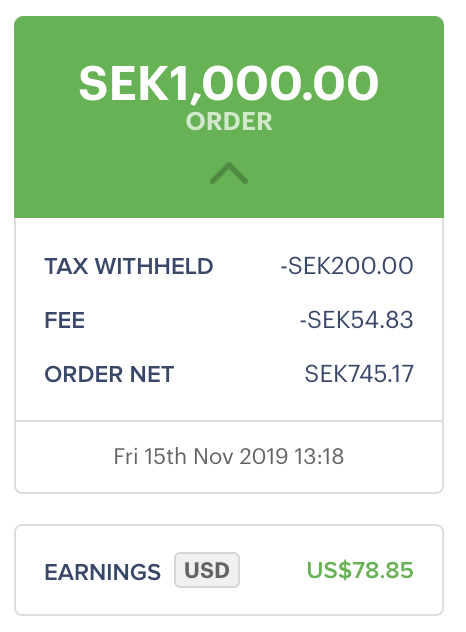The 5 years that made me start a SaaS business during COVID
In September 2020, I went all in working for myself.
The COVID Pandemic and my cushy engineering manager job made it a hard decision. However, it wasn't an overnight thought of mine. In fact, It took me five years to wrap my head around it. I can divide that time into three entrepreneurial seasons of my life. Each season taught me essential lessons that provided enough insight into changing the course of my career.
Here comes my story.
Season 1: Naive ambitions
Back in 2016, not long after I relocated to Sweden for work, I discovered a popular local job website. People would use it to provide or find help with small stuff like fixing a clogged kitchen sink. What made me curious was that many folks were willing to pay a decent sum of money to place an ad there.
I checked out their website, and a few issues stood out right away. E.g., the site was far from user-friendly. Anyone could place an ad leading to potential fraud. And the list goes on.
So my devious plan was to make a better clone and get all their traffic.
The next thing I did was jumping right into coding. I'd worked with backend all my career, so most of my late evenings and weekends I spent learning how to do web development.
As you might guess, such an approach didn't make me rich. After a couple of months, I built an ugly semi-working clone that no-one ever visited. After a couple of failed attempts to promote it online, I abandoned the project.
This is how I learned that building in a vacuum is likely not how one starts a profitable Internet business.
Season 2: Following the Y-Combinator way
This season started with a Hackathon organized by the Swedish state. I participated together with a couple of colleagues from work. With zero prep, we unexpectedly won one of the prizes.

To collect the cash, though, the condition was to continue working on our project, which we were fine with.
However, it didn't take us long to realize that our prototype was impractical. In the next three months (I cringe realizing this) we spent debating what we should build. Eventually, we came to some sort of agreement. It was a mobile app for discovering vegan food. Ironically, none of the three of us were vegans. However, we knew veganism was trending back then, so why not give it a shot? Lol.
That year we also applied to the YC Startup School. The organizers screwed up with the invitation emails by accidentally inviting all 15 000 applicants into the program. Luckily for us, we got a tutorial to follow.
We did everything that YC told us: asked family and friends to test our product, talked with our early customers, shipped updates fast, yet something wasn't working out. Our user growth rate stagnated.
There were probably many reasons for that, but I believe the fundamental problem was that none of us were genuinely excited about the problem we were solving.
About half a year later, we abandoned the project.
It was a bit of a personal drama for me as I put a lot of my time and thought into this, yet the product didn't take off.
I told myself then that if I ever decide to build anything on my own again, I'll have to be in love with it.
Season 3: The Indie Hacker way
In the next few months, I spent my time studying the topic of building successful businesses online.
One resource I want to mention in particular was the Indie Hackers forum. It's where founders of so-called bootstrapped businesses exchange ideas and help each other with building their online businesses.
I got tones of insight and learned what a bootstrapped business is and how it functions. One common advice I heard over and over again was starting with the audience and their problem first. The solution gradually builds up, evolving through continuous iterations driven by customer feedback.
Another concept discussed a lot on the forum was the founder-market fit. In essence, it is an unfair advantage that sets founders apart from their competitors. This idea especially resonated with me, given my previous failed attempts.
I knew that, in my case, the founder-market fit was in software engineering. And one thing I always enjoyed doing was running technical interviews. I also had a decent idea of how resource-intensive it is to set up a rigorous interview process.
Next, I scheduled a handful of conversations with different companies who had had experience hiring software engineers before. That showed that there is ample room for improvement with how hiring teams assess tech talent.
In the next half a year, I continued speaking with different hiring teams to understand what I could bring to the table.
Eventually, I launched an MVP that made a few hundred bucks. That gave me enough confidence to realize I was on to something.
Then COVID came. Lots of companies went bankrupt, and almost everyone stopped hiring.
This gave me enough time to reflect on whether I want to keep going as an entrepreneur. There were obviously pros and cons, but I felt like the pros part outweighed. I still remember that extraordinary feeling when I got my first payment notification.

Season 4: Now
It's been a few weeks already since I went all-in with my entrepreneurial endeavor to work full-time on the coding tests platform I'm building. A lot of companies have resumed hiring, which opened up for new exciting opportunities. I realize it's a marathon, but I've never been more excited to take on the challenge.
Thank you for reading till the end! I'll keep sharing my journey on Twitter, so don't hesitate to follow me there.